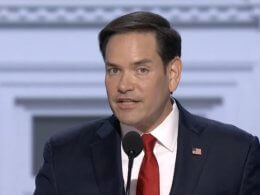The United States Food and Drug Administration (FDA) announced its decision Monday to work with a Chinese drugmaker to import a chemotherapy drug called Cisplatin to ramp up supply amidst rampant drug shortages in the U.S.
Speaking to NBC News, FDA Spokesperson James McKinney said the government agency hoped to import Cisplatin and another chemotherapy drug, Carboplatin. The official did not go into further detail about potential suppliers for the drug. Cisplatin has been in shortage in America, while the supply of Carboplatin has been low since late April.
McKinney did say that healthcare providers would be able to order the drug this week.
Cisplatin comes from drugmaker Qilu Pharmaceutical, which is marketed and produced in China but has not been approved by the FDA. According to a May 24 letter, Qilu will work with the Canadian-based drug company Apotex to import and distribute the medication, which will come in 50-milligram vials with Chinese labels.
"The FDA is responding to yet another generic drug shortage," said Edmund F. Haislmaier, an expert in healthcare policy and markets at The Heritage Foundation. "The underlying cause of those shortages is that generic drugs have become low-margin commodity products," he added.
Drug advocates and organizations reacted to the latest news from the FDA, stating that working with a Chinese drugmaker to increase the supply of Cisplatin and fix the ongoing problem of drug supply chain problems.
Drug experts note that Cisplatin and Carboplatin are platinum-based drugs given to an estimated 10% to 20% of all cancer patients. These drugs are used in testicular, lung, bladder, cervical, and ovarian cancer disease. As a result of the ongoing drug supply shortages, cancer patients will go without medication.
"As a result, generic drug manufacturers have neither the incentives nor the resources to invest in more reliable manufacturing."
"It is also why generic drug manufacturing migrated to countries with lower cost structures, such as India and China," Haislmaier told The Foreign Desk.
Last week on Twitter, FDA commissioner Dr. Robert Califf said the partnership with Qilu Pharmaceutical is temporary but will provide patients with a potentially life-extending drug.
"The public should rest assured that we will continue all efforts within our authority to help the industry that manufactures and distributes these drugs meet all patient needs for the oncology drugs impacted by shortages," Califf said.
"To really solve the problem, Congress and the FDA need to implement a set of reforms that identify and preference manufacturers that invest in more reliable production and enable them to charge more for their products," Haislmaier said.
The latest move by the FDA is sure to spark concern and debate in Congress, as lawmakers in the House and Senate have called on the Biden administration to de-couple the U.S. economy from the Chinese markets, given Beijing’s aggressive push to expand in the South-China Sea and eventually take over the island state of Taiwan. China has also spread illegal and dangerous synthetic opioids and fentanyl drugs across the U.S. southern border, resulting in the devastating deaths of many Americans.










